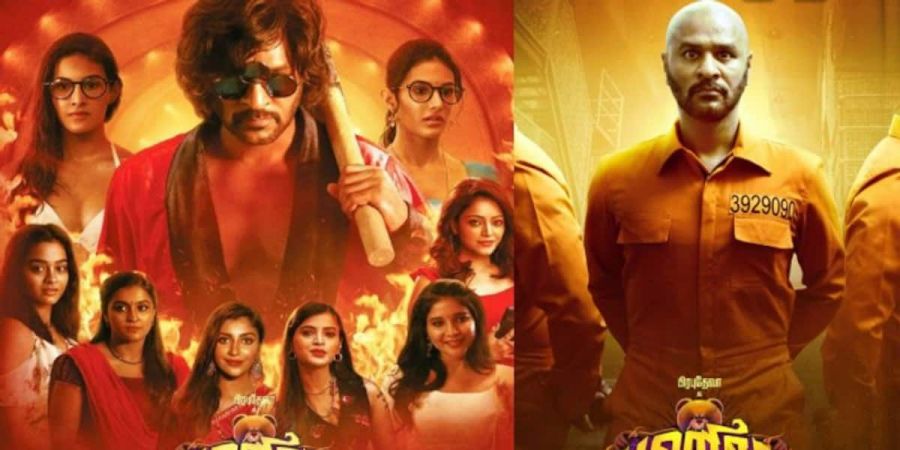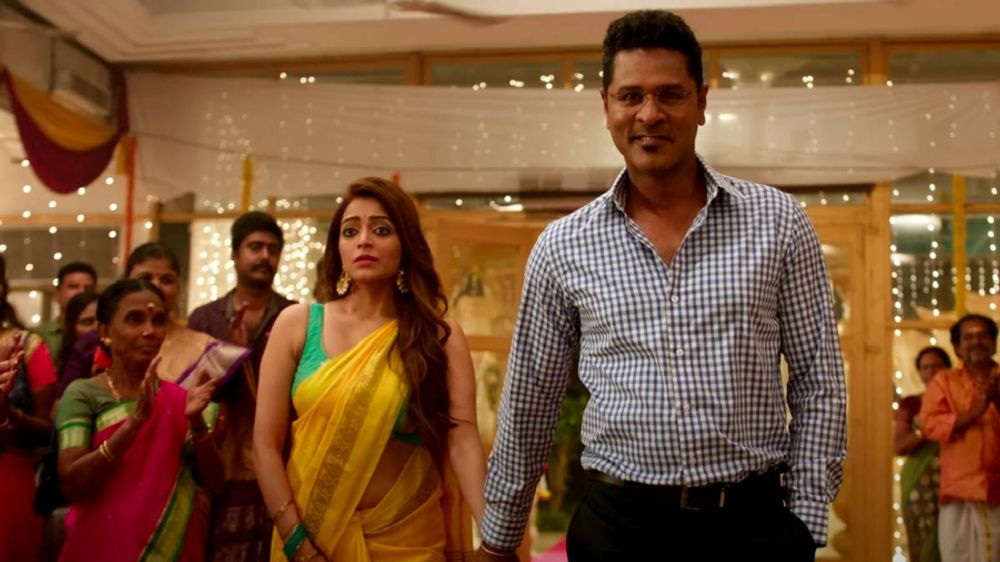

After his mother passes away, Bagheera escapes captivity and emerges as a formidable opponent for everyone except Mowgli, whom he considers a friend and whom he would do anything to keep safe. This one-liner actually tells the tale of a fictional character with the same name from Rudyard Kipling's The Jungle Book rather than the plot of the most recent Bagheera movie directed by Prabhu Deva-Adhik Ravichandran. Despite this, Adhik's film attempts to retell the tale of the odd connection between a man-cub and a black panther by substituting a psychopath for the latter and "characterless" women who have been in several relationships that have left some men devastated for the amiable forest creatures. The movie tries to build a narrative around this flimsy concept, and that's what we get is a flood of bad adult comedy, quips about boy best friends, references to old movies, and gravely underdeveloped acting chops that together stifle what must have been Prabhu Deva's part of a lifetime.

It's nothing new for Adhik to experiment with creating sequences in which a woman dumps her partner in favour of a better match, or in which drinking by women causes the end of the world, or in which a woman's virginity must be protected until she finds a husband. In fact, they nearly entirely make up the story of his feature film debut, Trisha Illana Nayanthara. Anbanavan Asaradhavan Adangadhavan, his second film as a filmmaker, made a valiant effort to drive home the point that men's love is more true and pure than women's, who seem to find it simpler to end a relationship. But in Bagheera, in which our hero kills ladies who engage in the aforementioned practises, these clichés reach their zenith. If this prompts a number of films to come to your nevertheless, it is hardly a surprise. The movie has the impression of being a mash-up of concepts taken from well-known works like Anniyan, Manmadhan, Sigappu Rojakkal, and Aalavandhan. Several other sequences appear to have drawn inspiration from Hollywood productions like Hereditary and Shining. Even a major character's dead body, who commits suicide with what appears to be an acid shower, ends up like Two-Face from The Dark Knight.
The main issue with Bagheera is that it doesn't take itself seriously; during the entire running duration, there are numerous purposefully and accidentally humorous instances. Similar to AAA, Bagheera also has a cop who, in keeping with his Tamil film-making predecessors, won't crack the case until the very end of the movie. Even so, it still doesn't explain why this cop, played by Sai Kumar, who is usually dependable, pulls off a Rolex by bringing a big speaker to a crime scene and then randomly using a pair of scissors to snip the crime scene tape as if he had mistaken himself for an actor invited to a clothing store's opening event.
If the film's premise wasn't already problematic enough, it only gets worse when it's exploited for comic effect. Fathers and daughters rush to the commissioner's office where the fathers shout out the number of guys their daughters have broken up with to the commissioner knowing that the killer is out for blood and is striking at any lady who has deserted a guy. When that sequence closes with the commissioner speculating about her daughter's count, the level of absurdity soars. Oh, and did I also bring up the Bagheera app? By entering information such as their name, the number of years they were in that relationship, and a picture of their respective partner, the application allows males to file complaints against women who "cheated" them.
Even worse are the movie's repeated assertions that not all women are being stereotyped equally by the creators. Maybe #NotAllWomen is true? The conversation writing also doesn't accomplish anything to advance the story. One scenario features a fictitious mother jokingly telling her fictitious future daughter-in-law that she's glad that the little girl has never requested her son to reserve an Oyo room. Sending a new space probe to locate a planet where such statements are seen as jokes ought to be ISRO's next mission. Even when he's by chance sitting in a car, Bagheera doesn't deviate from his usual behaviour. When a girl asks him to protect her from molesters, he refuses, saying, "What's a good girl doing at a boy's hostel at night?Bagheera, however, saves her when he learns that she is actually a "good girl" who had come to meet her boyfriend of eight years hard to come by and must be saved at all costs. Somedays, you’re just glad that you didn’t have an expensive tub of popcorn on your lap that you might have sent flying in despair.
Prabhu Deva, for whom Bagheera affords the scope to play unlike any other film has over his nearly three-decade stint as an actor, is likely the lone bright spot. Apart from the film's unsolvable issues, the actor's distinct comedic timing, body language, and dance, of course, provide solace. With his appearance and acting, the actor excels in differentiating his many personalities. Even the actor's renowned songs Vennilave Vennilave and Chikku Bukku Rayile are mentioned. The actor injects a strong dose of novelty into the picture in the final twenty or so minutes, when his psychosis is on full display with a remix version of "Pattukottai Ammalu" for company. However, the harm done by that time it was much worse for any attempt to save the movie.
